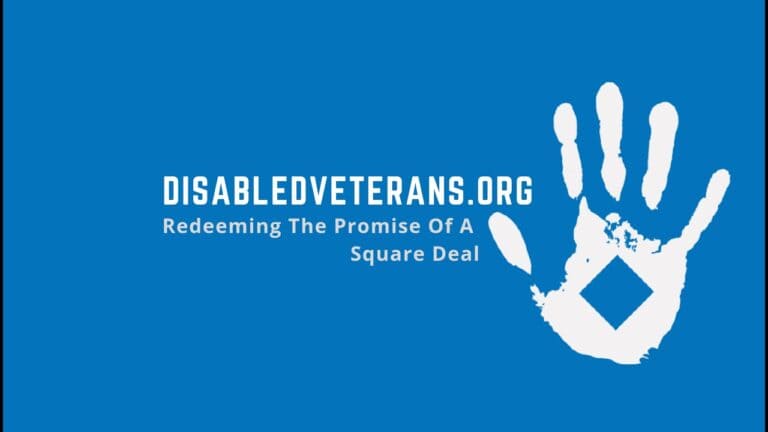HF 1855: How Minnesota’s Anti-Fraud Bill Became a Constitutional Crisis for Veterans and Their Legal Advocates
On March 25, 2025, the Minnesota House Judiciary Committee took up House File 1855 (HF 1855)—a bill marketed as a modest consumer protection measure for Minnesota veterans. On its face, the bill appeared aimed at combating “claim sharks” and fraudulent actors who prey on vulnerable veterans seeking disability benefits. But what emerged during the hearing—and in the language of the bill itself—revealed a far more troubling reality: HF 1855 attempts to regulate federally VA-accredited attorneys without following the proper legal and constitutional channels.
Despite claims from bill sponsors that HF 1855 protects veterans, the bill bypasses both the Minnesota State Bar Association (MSBA) and constitutional safeguards such as Separation of Powers and Federal Preemption, while empowering non-attorneys and state agencies to regulate federally licensed legal professionals. In doing so, the bill raises the alarming prospect that Minnesota could set a dangerous precedent—one where state agencies and nonprofits can covertly sideline licensed attorneys in favor of unaccredited bureaucrats or politically connected service officers.
This article provides a full breakdown of the HF 1855 hearing, explains why the bill was laid over (effectively stalled), and highlights the constitutional and ethical violations embedded in its language. It also helps veterans, County Veterans Service Officers (CVSOs), and members of Veterans Service Organizations (VSOs) understand why this matters—and why they should care.
“I’m a little disappointed,” said Rep. Matt Bliss. “For some reason, I was told this bill was gonna be laid over today because we didn’t come to an agreement… This is very partisan at this point.”
Rep. Duran echoed that sentiment: “We kind of expressed our concerns about moving anything forward past this point… and right now, it doesn’t look like that’s being reciprocated back.”
Despite its stated intent to protect veterans, HF 1855 drew sharp criticism from veteran rights attorneys and lawmakers alike who recognized its true effect: driving accredited legal advocates out of Minnesota and reducing veterans’ ability to seek help in securing benefits.
HF 1855 Testimony (Video)
A Brief Primer: Who Regulates Attorneys—and Why It Matters
In the United States, attorneys are regulated either by the courts or by designated professional associations such as state bar associations. They are not regulated by executive agencies or nonprofit organizations, particularly when the legal work in question is federally authorized, as is the case with VA-accredited attorneys.
When a state agency or legislature attempts to regulate attorneys without going through the judicial branch or the MSBA, it violates two core constitutional doctrines:
- Separation of Powers – the government must not allow the executive branch (e.g., Minnesota Department of Veterans Affairs) to usurp judicial functions such as attorney discipline or legal ethics oversight.
- Federal Preemption – where federal law governs a subject matter exclusively (like VA claims under 38 U.S.C. § 5904), states cannot override or duplicate federal rules. Any state law that attempts to add new penalties, oversight, or obligations to federally governed activity is likely unconstitutional.
HF 1855: A Bill That Overreaches
Rep. Emma Greenman, the bill’s author, presented HF 1855 as a response to “a rapidly increasing fraud scheme targeting Minnesota veterans.” The bill’s supporters, including the Minnesota Department of Veterans Affairs (MDVA) and the Minnesota Association of County Veterans Service Officers (MACVSO), argued that new consumer fraud penalties are needed to stop unaccredited businesses from exploiting veterans.
But HF 1855 goes much further than that. Under Subdivision 4, the bill applies Minnesota’s Consumer Fraud Act (Chapter 325F) to any technical violation of the Disclosure Act, including advertising content and speech by accredited professionals. In doing so, it covertly ropes VA-accredited attorneys into a penalty scheme for conduct that is already regulated under federal law.
This would allow non-attorneys—like those at MDVA or MACVSO—to help define what counts as “fraudulent” behavior for licensed attorneys without MSBA or judicial oversight. Yet no VA-accredited attorneys or the MSBA were consulted during the bill’s drafting. MDVA and MACVSO have joint responsibility for drafting a Disclosure form that the entities want attorneys to force veterans to sign before they can hire a VA-accredited attorney.
Was This an Accident—or an End Run Around Oversight?
If HF 1855 truly intended to regulate VA-accredited attorneys, why didn’t its authors explicitly name them in the bill? Why did they not consult with VA-accredited attorneys prior to drafting the bill to assess efficacy?
The likely answer: Doing so would have triggered a review by the Minnesota State Bar Association and the Judiciary Committee, which would have exposed the bill’s constitutional vulnerabilities. Instead, the bill’s supporters used vague language and sweeping enforcement provisions to create backdoor regulation—a tactic that avoids democratic scrutiny and shifts control of the legal profession to executive branch insiders and nonprofit organizations.
This undemocratic maneuver violates the principle that attorneys must be regulated by attorneys, especially when they are authorized to practice under a federal legal framework. Allowing non-lawyers to oversee legal practice—especially nonprofit service officers with political connections—erodes both the independence and the credibility of the legal profession.
The Maneuver: Regulatory Laundering to Evade Oversight
What MDVA, MACVSO, and members of the Commander’s Task Force are doing through HF 1855 is a textbook example of regulatory laundering—a maneuver where a law is written in such a way that it intentionally avoids mentioning its true regulatory targets, in this case federally VA-accredited attorneys, to bypass constitutional checks and balances that would otherwise apply.
By avoiding explicit reference to attorneys in the bill text, the drafters evade mandatory review by the Minnesota State Bar Association, judicial committees, and other professional oversight bodies. Instead, they expand the enforcement language under Minnesota’s consumer fraud laws, enabling agencies and politically aligned nonprofits to enforce penalties and restrictions against attorneys and veteran-owned consulting firms without naming them.
This type of maneuver misleads legislators and the public about the true scope and effect of the law. It disguises the transfer of regulatory authority from courts and professional associations to executive agencies and nonprofits—groups that have no legal authority to oversee attorney conduct under state or federal law.
In practice, this tactic serves as an end run around the separation of powers, allowing executive branch-aligned entities to assert control over areas of law they have no constitutional authority to regulate. It also strips veterans of their right to choose their own representatives, while expanding state control without public accountability.
Put plainly: HF 1855 was designed to appear narrow and protective—but was engineered to be broad and punitive. And that is precisely how regulatory laundering works.
The Irony: How Veteran-Led Institutions Are Undermining Veteran Choice Through Regulatory Laundering
One of the most troubling—and ironic—aspects of HF 1855 is the role of veteran-led institutions that claim to defend veterans’ rights, while quietly working to restrict them. The Commander’s Task Force (CTF)—which includes legacy organizations like the VFW and DAV—alongside the Minnesota Department of Veterans Affairs (MDVA) and the Minnesota Association of County Veterans Service Officers (MACVSO), have aligned behind a bill that would effectively suppress veteran choice, block private advocacy, and expand state control, all under the banner of “consumer protection.”
These organizations, composed largely of veterans themselves, market their work as aligned with democracy, free enterprise, and the U.S. Constitution. But HF 1855 exposes a sharp contradiction: these groups are now leveraging a tactic known as regulatory laundering—intentionally vague legislation designed to avoid legal scrutiny—to centralize power and eliminate competition from federally VA-accredited attorneys and veteran-owned businesses that serve veterans independently of the state.
Rather than celebrating innovation or honoring veterans who have built businesses to help their peers navigate the VA system, these institutions are working to shut down or discredit any provider they don’t control. The bill makes no meaningful distinction between predatory actors and compliant, law-abiding professionals. Instead, it empowers state agencies and politically connected nonprofits to impose broad penalties, without judicial oversight or required bar association review.
This is not about protecting veterans from fraud—it’s about preserving a monopolized delivery system. By laundering regulatory power through vague consumer fraud language, these institutions evade constitutional checks and balances while undercutting veterans’ ability to choose their own advocates, including attorneys authorized by federal law.
The result is a betrayal of core values: liberty, choice, due process, and economic freedom. The message is clear—these groups support veterans, but only so long as veterans rely exclusively on their services. That is not advocacy. It is control.
This isn’t a mere policy disagreement—it’s a structural power grab with sweeping implications for how veterans access justice and build post-service livelihoods. And it deserves immediate public and legislative scrutiny.
The Outcome: Tied Vote, Bill Laid Over
In a rare move, the committee vote ended in a 7-7 tie, which blocked the bill’s advancement. It will now return to the Veterans and Military Affairs Division, where further changes may be considered. For now, the bill is stalled.
March 25 Hearing: Veterans and Attorneys Push Back
Despite efforts to push the bill through the Judiciary Committee, the hearing ended in a 7-7 tie, meaning the bill was laid over and not sent back to the Veterans and Military Affairs Division. A series of insightful testimonies shed light on the unintended consequences and constitutional dangers of HF 1855.
Benjamin Krause, Esq. – VA-accredited attorney, journalist, and veteran advocate:
“This creates a no-win situation for VA-accredited attorneys… Regulatory risk like this is why I stopped taking paid Minnesota veteran cases years ago, and I’m not alone.”
Krause warned the bill would regulate attorney speech in media interviews or blog posts:
“If I’m featured on a live podcast… and we promote one of my recent wins at the U.S. Supreme Court but don’t also promote CVSO services, that could now be consumer fraud… But if we promote CVSOs, we risk false advertising—because they aren’t authorized to represent veterans in court.”
Francis White III, Esq., SMSgt, USAF (Ret.)
“When HF 1209 was initially passed in 2017, you put in a provision… so draconian it prevented me and many other attorneys from representing Minnesota veterans… Leave the language as it is.”
Brian Lewis, Esq.
“This bill… is regulating the practice of law… If I don’t secure that veteran what they think is the proper rating, I could be targeted for a lawsuit.”
Lewis emphasized that only federal law governs attorney fees and conduct in VA claims, making the bill legally unenforceable.
Supporters of the Bill and Their Claims
Rep. Emma Greenman
“This is a modest solution… It just makes sense that the veterans who are ripped off by claim sharks and others should be able to use the consumer protection law.”
Ben Johnson, Deputy Commissioner, Minnesota Department of Veterans Affairs:
“Our biggest concern is ensuring that the best resources are available to help veterans… through the protections offered by the courts and through the attorney general’s office.”
John Baker, Executive Director, Minnesota Association of County Veterans Service Officers:
“This gives not only the attorney general’s office more leeway, but it also gives a veteran a private right of action.”
Political Fallout: Partisan Overreach and Loss of Trust
Multiple Republican members expressed frustration that the bill was pushed forward under the false pretense of continued negotiation:
- Rep. Matt Bliss: “I was told this bill was gonna be laid over… This is very partisan at this point.”
- Rep. Duran: “It doesn’t look like there’s any movement here. I will not be supporting this.”
- Rep. Peggy Scott: “Historically, veterans bills don’t become law unless they’re passed bipartisanly… If there’s 10 or fewer [VA-accredited attorneys] in Minnesota, that’s just not adequate.”
- Rep. Engen: “We’re throwing the baby out with the bathwater. If we’re just gonna take a sledgehammer to an issue that could have been addressed with a scalpel, that doesn’t seem like necessarily good legislation.”
Conclusion: Where We Go From Here
HF 1855 may have been temporarily blocked, but the threat it represents remains.
Behind the rhetoric of fraud prevention lies a coordinated effort to centralize power over VA benefits access within state agencies and politically connected nonprofit groups—at the expense of qualified, federally authorized attorneys.
Minnesota veterans already face long wait times, complex appeals, and limited legal support. The solution is not to drive out the few attorneys still willing to help—but to work within the existing legal frameworks, both federal and state, and with professional oversight from the MSBA and judiciary.
This issue isn’t about left vs. right—it’s about upholding the Constitution, respecting the role of the courts, and ensuring veterans can choose competent representation without being boxed in by political gatekeepers.
Stay tuned to see if negotiations change the status of the bill. If you’re a veteran or advocate concerned about HF 1855, now is the time to speak up. Contact your legislators and tell them: Protect veterans’ rights by protecting their right to legal representation. Don’t let politics and backroom deals replace constitutional governance.







Maybe it’s because Gov Tim Walz is a traitor who withheld “THE TRUTH ABOUT VETERANS’ SUICIDES” for the past 16 years.
Ref:
110th Congressional Hearing
“THE TRUTH ABOUT VETERANS’ SUICIDES”
(Pages 81, 82 and 110)
Fraud: “The iintentional perversion of truth in order to induce another to part with something of value or to surrender a legal right.” How is the not the Veterans Healthcare Administration when they simply pretend to be treating people with substandard treatments when they have the money and it’s the law that they’re supposed to be providing the necessary treatments? Why do the federal courts allow the executive to run a negligent and incompetent operation decade after decade?
Grady Memorial Hospital and the Atlanta VA… same shit show different building. It has been like that for 40 years. You need pills or a limp chopped off they’ll do it. Anything else you can forget it unless you wanna run the chance of dying… and they’ll let you die for sure. They should just go ahead and get euthanasia going. Unless you have a good amount of money, healthcare in the USA is third world diarrhea.
We need the ability to sue the VA with ease. That’s what a functional democracy would look like. Not all three branches of government standing up for each other when citizens are abused and denied care by the incompetents at VA. That or we should be able to sue them when they’re done at the VA. They shouldn’t be protected for life over their misdeeds at VA.
This is borderline criminal.
I’m glad that I didn’t renew my VFW membership, from the perspective did that organization seems to support the regulatory laundering! Symbolically, it appears that’s the only thing that I can do from afar.
I don’t reside in Minnesota, but I suspect that many of us that live in the Soviet Socialist Republic of Democrat States, will be further exposed to control.
Thank you for the update Ben!
It’s conservatives that make the VA a half ass joke. You’re dazed and confused. A victim of right wing propaganda.
did you bother to read?
clearly this is not something being promoted by the Republicans or conservatives.